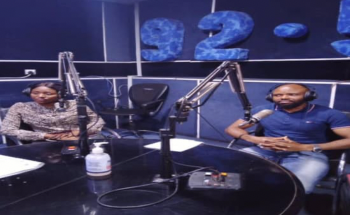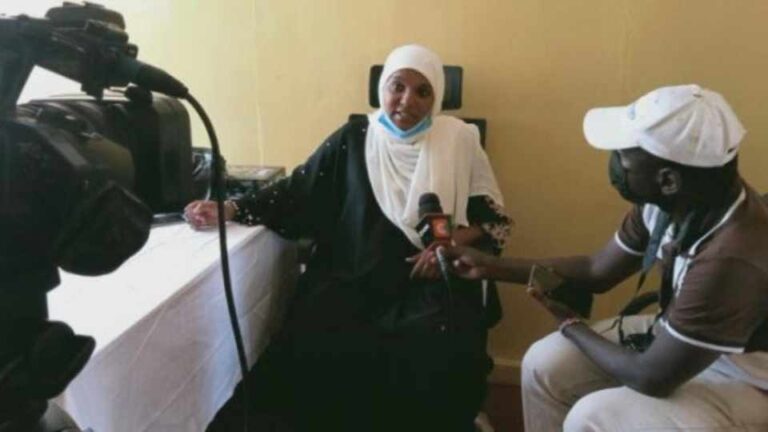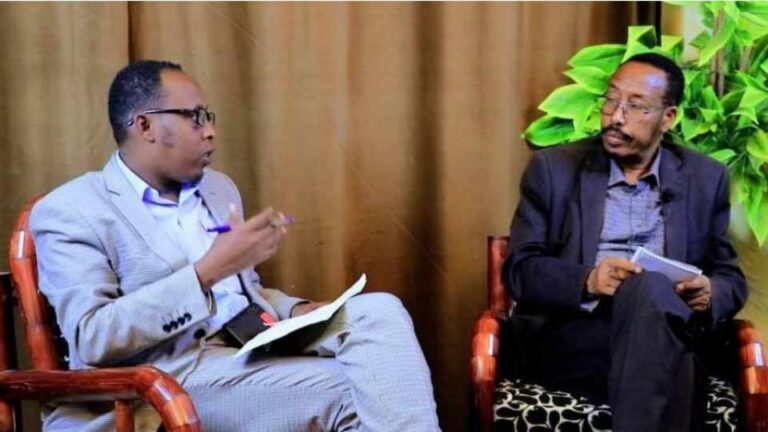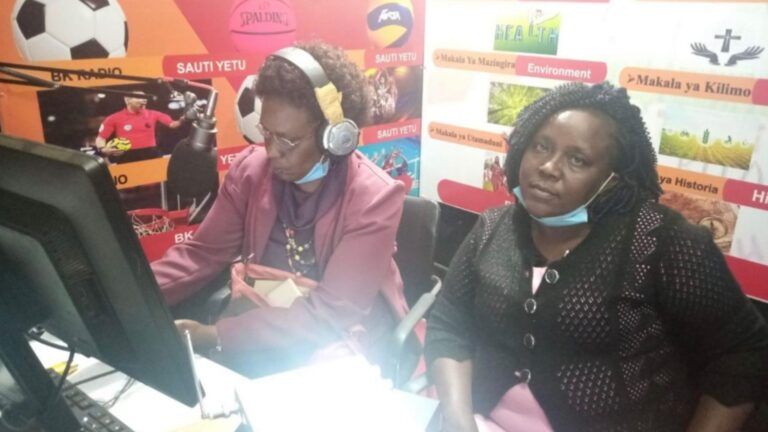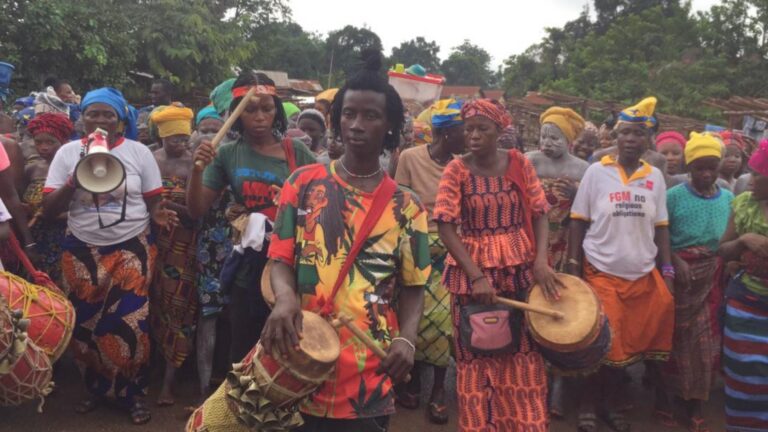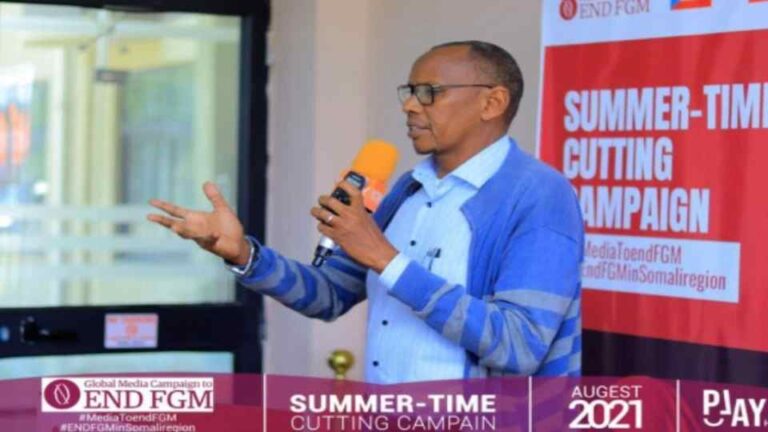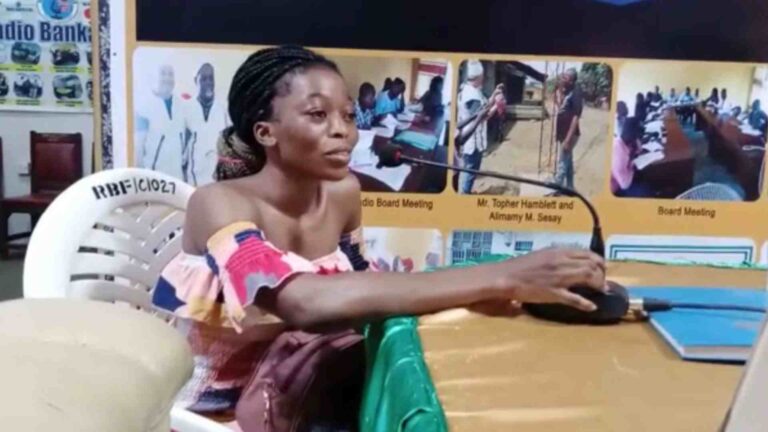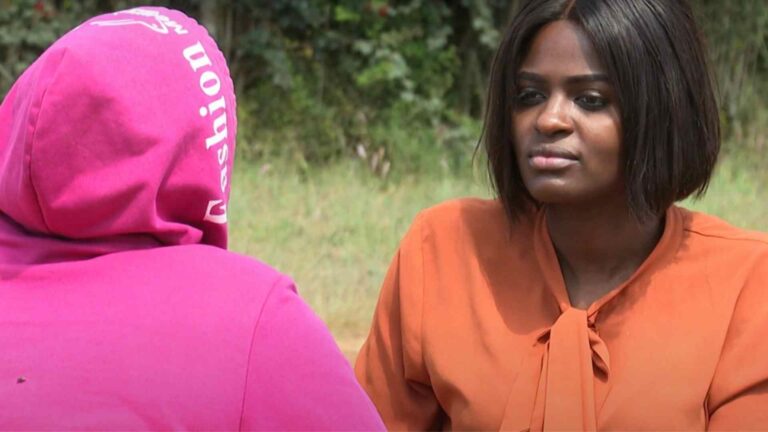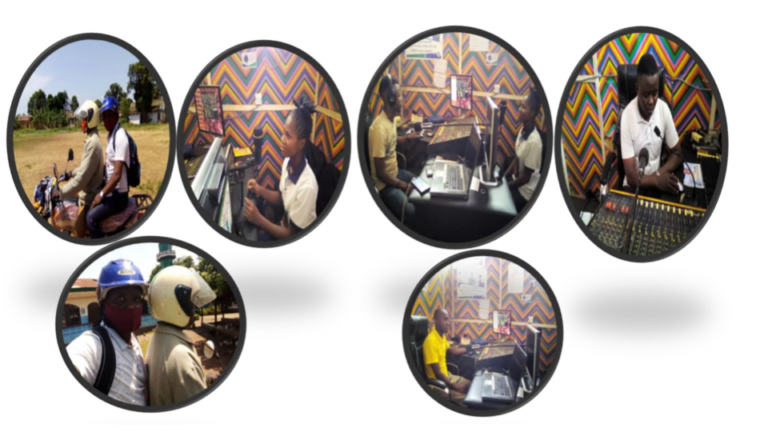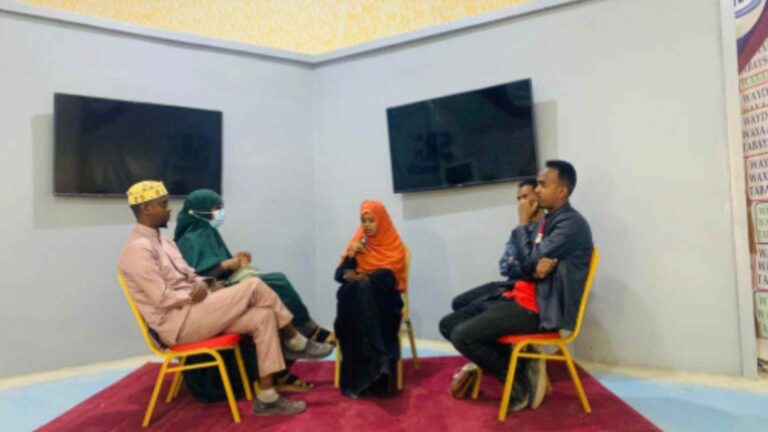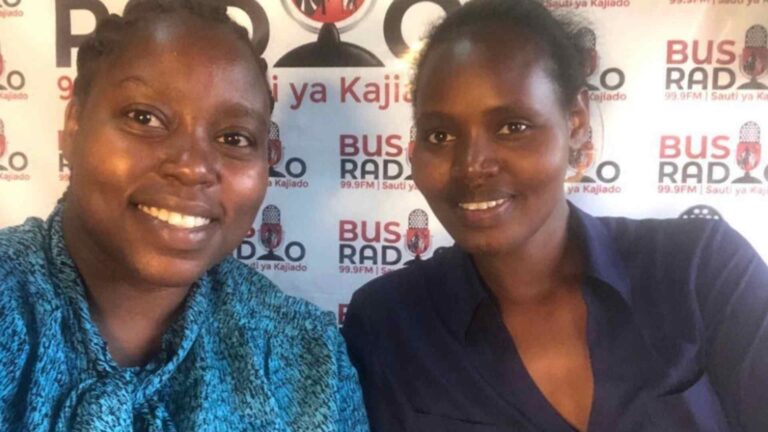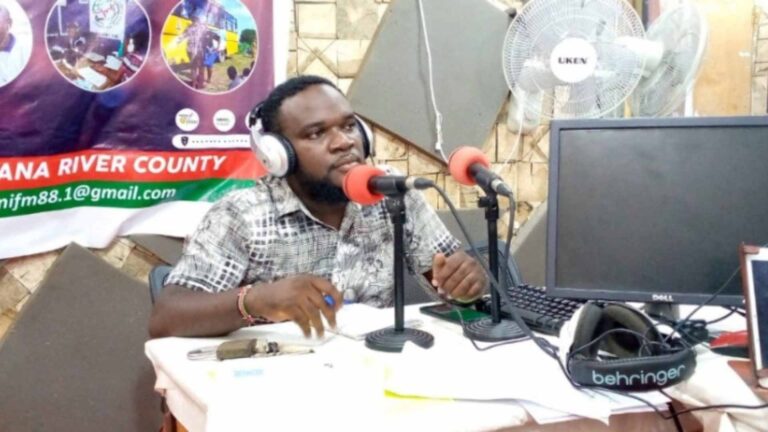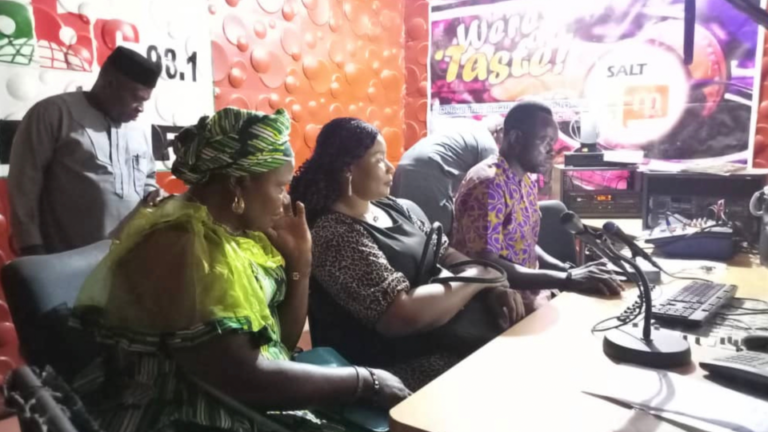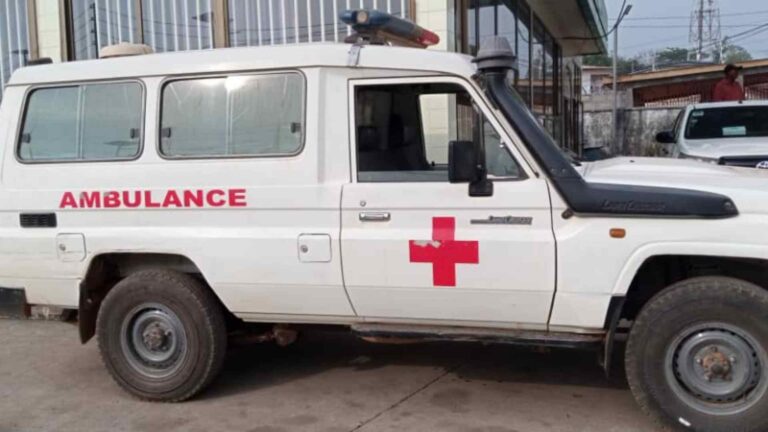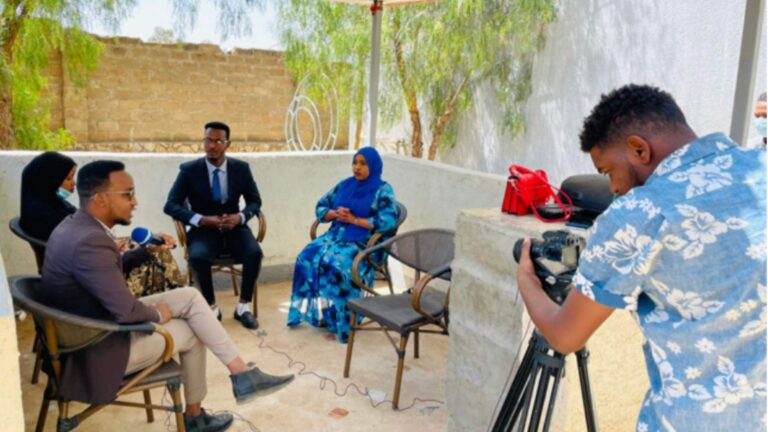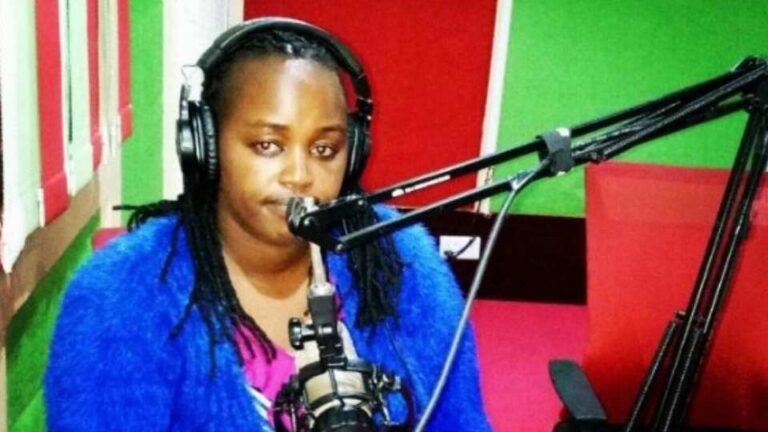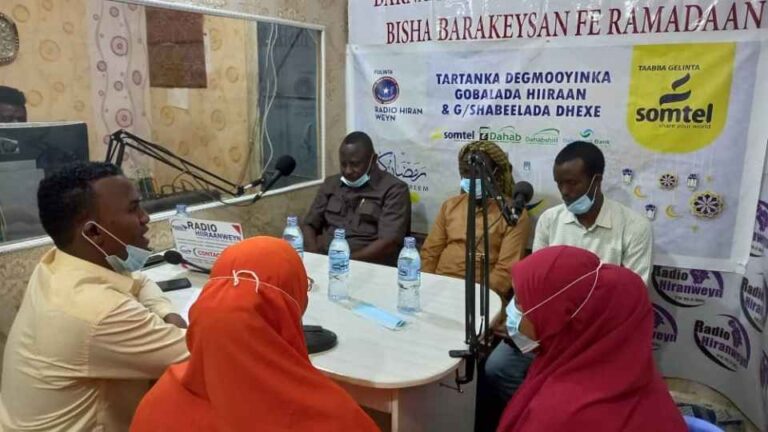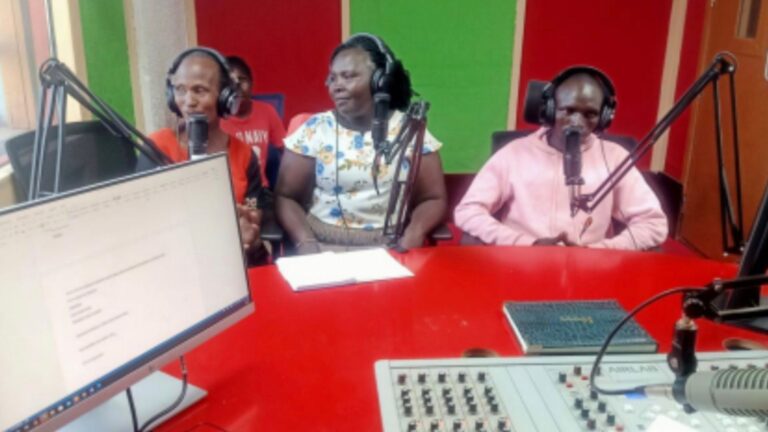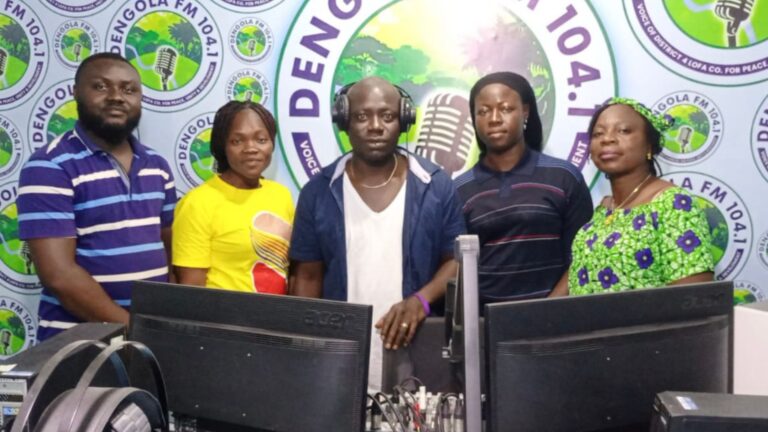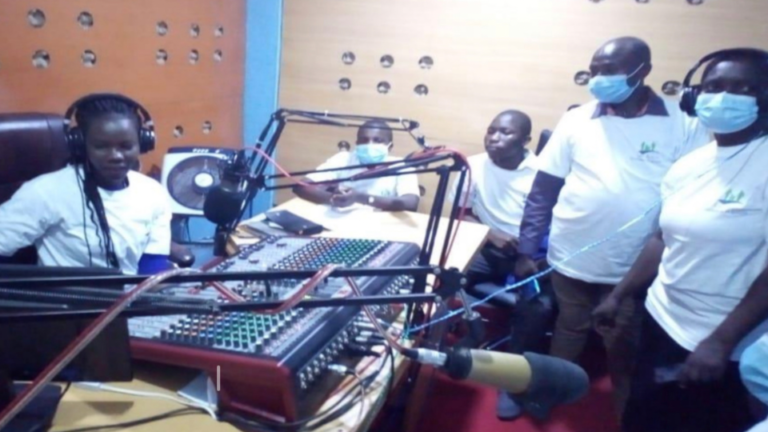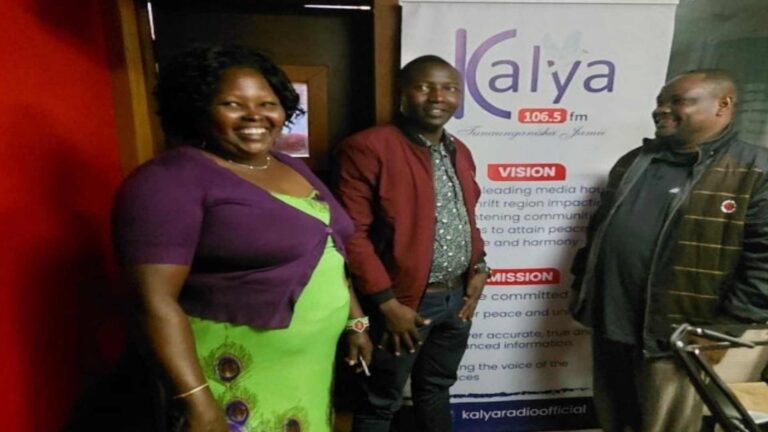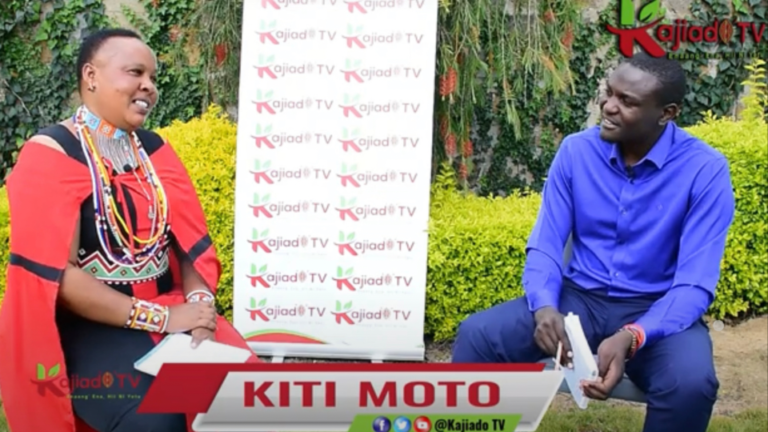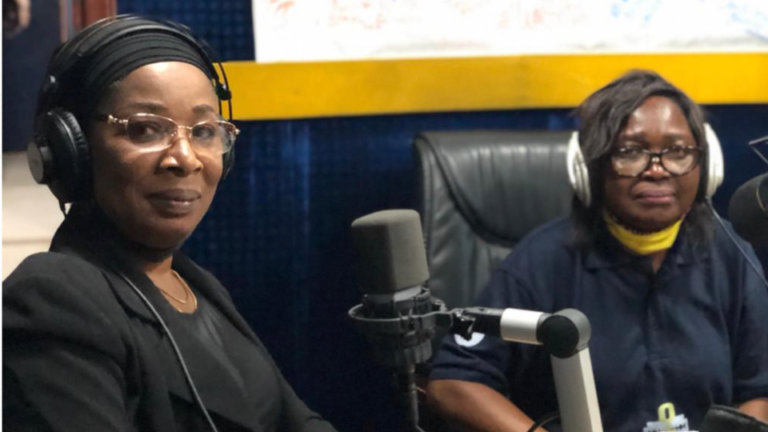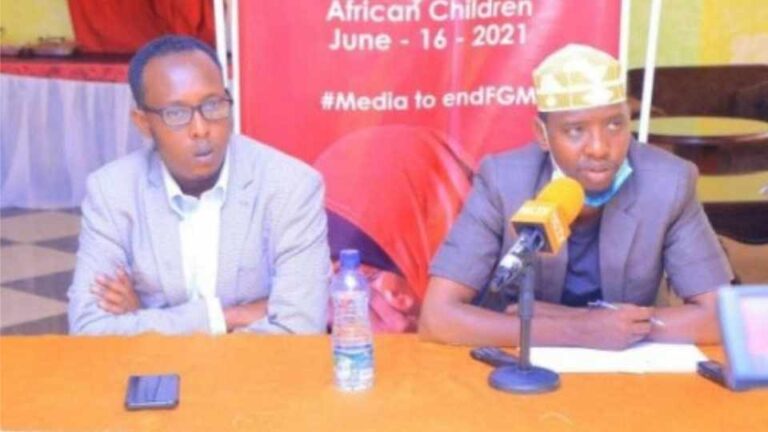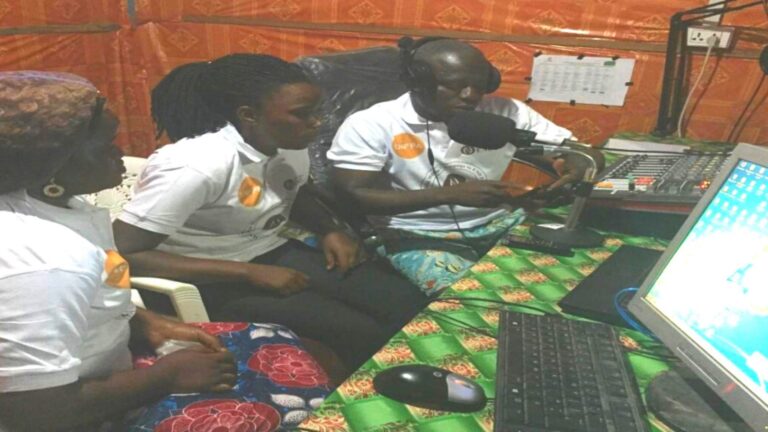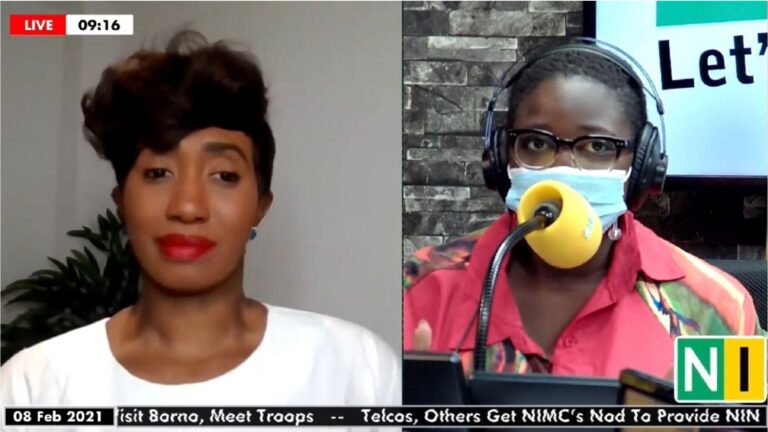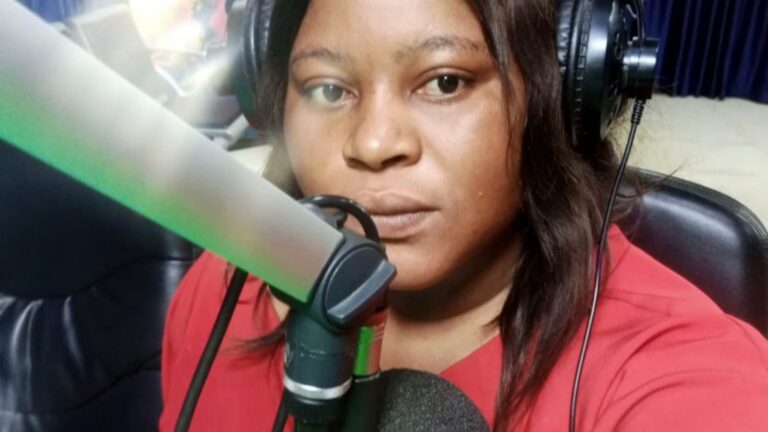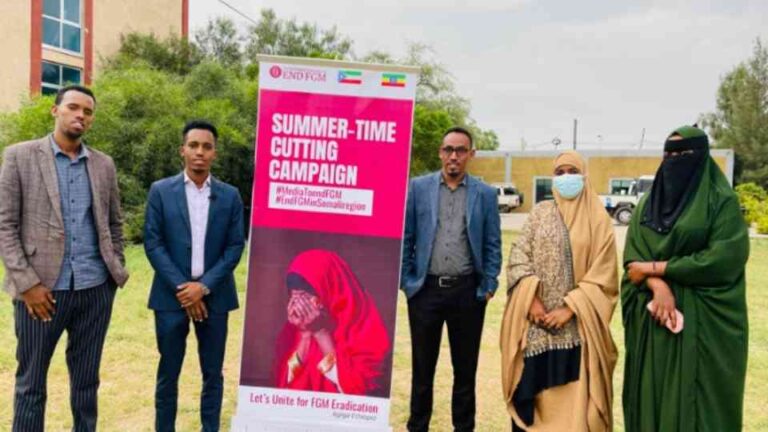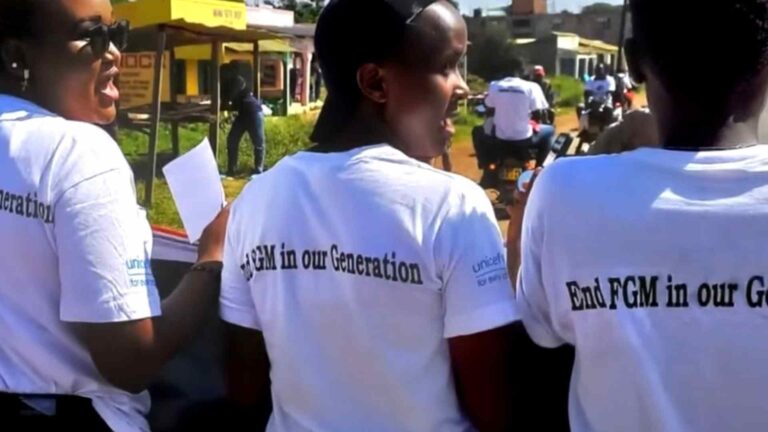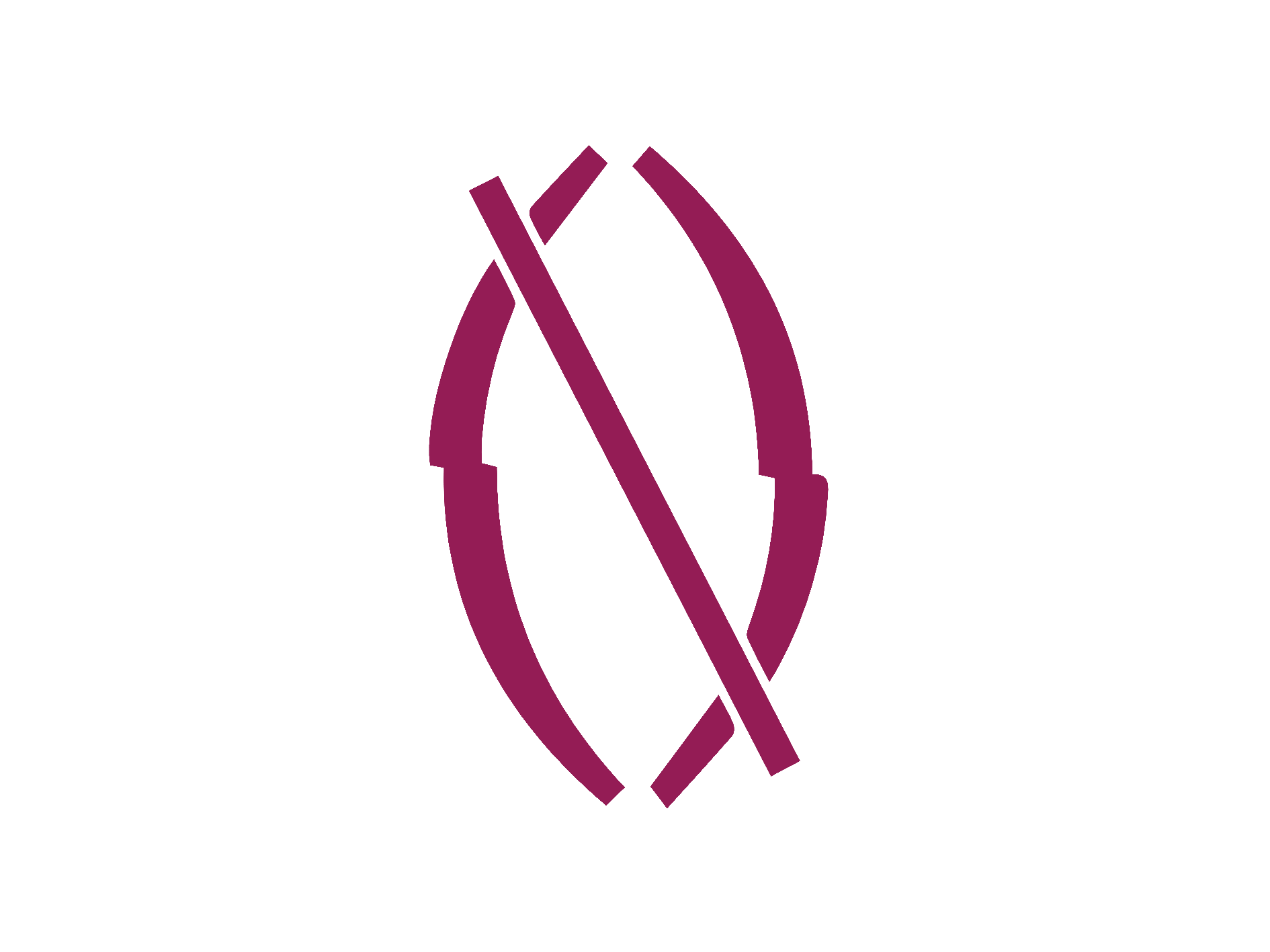By Aisha Roba
Aisha Roba anti-FGM campaigner and activist organised a Radio talk show on the negative impacts of FGM in Isiolo county, Kenya.
The Radio show
The show was a one-hour talk show done on Angaaf radio which covers the entire Isiolo county Apart from a few interior parts of the county.
We Engaged with Angaaf Radio because it is a local Radio and has a large audience.
During the show we had one medical personnel and two Anti -FGM champions/ survivors give their take on FGM and the experiences they had after undergoing the cut The show was engaging because it had a question and answer session where the listeners called in to ask questions and give inputs.
We also had a recorded Aa two-minute jingle that played for 3 days. The jingle had pre-recorded messages on ending FGM that was to be played during prime times.
Success
The project was successful we had great feedback from the community.
The three selected people to be part of the talk show led very Good discussions and also it’s not common for survivors to come out and share their own stories as we did. People felt the stories of the survivors.
Strong messages
- FGM is no longer a taboo subject, people can talk about it without fear/shame.
- Medicalization of FGM is happening in Isiolo county
- Many women/youth groups have been formed to sensitize the community on FGM
- The county has a survivor’s network that was formed recently.
- Most of the community members are not aware of the presidential directive of ending FGM by 2022.
Wins
- We had a caller who shared an experience of a young girl who underwent FGM and lost blood to a point of death. Immediately after this confession, another caller reached out saying that it was then he learned of the effects and said that he will never let any girl undergo FGM.
- Community members who were calling in accepted that FGM had negative effects.
Challenges
- We had the forum in Kiswahili because of the diverse nature of the community members. Some of the aged community members were complaining that we have to do it in local languages.
- some questions asked were so delicate. This made us realize that even the survivors and champions themselves need enough training on how to engage and give feedback to the community members we live in.
Testimony by Rosaline (warning some readers might find this information disturbing)
Mrs. Rosaline Gollo narrated her horrible childhood story in the hands of cutters when she was aged six. The story goes as follows:
I was six years old when it happened to me at my rural village near Merti in Isiolo County. I knew what was going to happen, I knew they were going to cut me because a lot of my friends had done it and I had a look – it was quite normal for girls to have a look at each other.
My friends had told me that it was really painful, that it was horrible, so I was terrified. It happened when my mother was away and relatives were looking after me and my sister. In the morning, when I was at school, they told me it was my time. My uncle and aunt came to take me from school. It was my sister’s time too – she was eight years old.
The woman who cut us was my grandmother’s sister – and she was going to cut us in a hut near a huge acacia tree. They used ropes to tie our legs apart and there were lots and lots of girls there. I could hear screaming, lots of horrible screaming and there was so much blood. Girls were crying.
My sister went first, they cut her then they took her somewhere. I heard she fainted. My grandmother’s sister was cutting so many girls and when my sister had been done, she told her to just stand outside, and blood was running down her legs, then she fainted.
My grandmother was screaming at her sister – asking how she could do this to her grandchildren. She was terrified that my sister would die. But my great aunt insisted, and they said it was my turn.
I ran away – I ran as fast as I could but they sent boys after me and they caught me they took me by my legs and arms and carried me back. One of them was my older brother – he helped carry me back to the cutter. They tied me down. I was fighting as hard as I could, but they were stronger. I was screaming.
The old woman, my great aunt, used a razor blade – it was clean and new, but there was no anesthetic when she cut me. I have no memory at all of her cutting me – it’s blank. They tied my legs together with the whole way down so I couldn’t open my legs, I was like that for three to four weeks.
I remember my grandmother telling me I had to pee, I was terrified because my legs were tied I couldn’t sit to pee, so I leaned over to one side and the pain was unbearable. I jumped making the wound to tear and open. It was indeed the most horrifying thing as blood started to flow again.
When I was nearly twelve, my aunt examined me. They declared that I was not closed enough. My heart skipped a beat and almost stopped. Within a split of a second, the haunting memories of the trauma and agonies I had undergone came rushing back.
There was no other option. They had resolved with absolute finality that I must undergo the crude cut once more. They took me to the midwife who lives a few streets away. When I noticed where they were taking me, I tried to run away, but they held me tight and dragged me into the midwife’s house.
I screamed for help and tried to free myself but I was not strong. They held me down and put a cover over my mouth so I could not scream. Then they cut me again: and this time, the woman who operated on me made sure that I was closed.
I don’t know how many days I was lying there. The pain was terrible. I was tied up and could not move. I could not urinate; my stomach became all swollen. I was terribly hot one moment, then shaking with cold. Then the midwife came again. I screamed as hard as I could, as I thought she was going to cut me again. Then I lost consciousness.
I woke up in Merti hospital bed. I was terrified; I did not know where I was. I was in terrible pain; my genital area was all swollen and hurt all the time. Later I was told that the infibulations had been cut open to let the urine and the pus out. I was weak, and I did not care anymore. I wanted to die. It is years later now. The doctors told me that I could never have children the normal that is via the birth canal because of the infibulations. Therefore, I cried and cried and cried a lot for the better part of the week until there were no tears and my face is swollen, my eyes were red and my voice feeble.
I looked at my mother and my aunts, and I ask them: ’Why did you do this terrible thing to me?’” My periods were far from over. I started having periods and the problems started all over again. I had to go and see a doctor and again I had to be opened to allow the flow of the menstrual blood. Years later, when I was old enough to bear kids in long-term effect I had to go through BTL (Bilateral Tubulagation) and permanent closure of my uterus.
The village men or the potential suitors never looked my way after hearing that I could not bear fruits meaning children. However, I thank my creator that despite the stigma I faced, I am now a mother of four beautiful angels both through caesarian operations, however, I lost my beautiful baby boy on the operation bed.
I swear that my four girls would never trail this life-threatening path of Female Genital Mutilation. Lots of people from my community believe that if you are ‘open’ [haven’t undergone FGM], no man will want to marry you, and they keep telling me that. But I don’t believe that – and in any case, if a man doesn’t want me because I am open, the way Allah made me, then he can go away!
This may sound strange, but I’m not angry about what happened to me. There’s no point, I don’t want to spend my life feeling anger and hate. I want to be at peace.
linkages
We have created a good rapport with the radio station we were at and they promised to have us again and also they agreed to have a day in a month they will be discussing issues of FGM.
Next time
I would engage several religious leaders and Elders, give their opinions because a number of the community members practice FGM because it is religious and cultural at the same time. If we have the religious leaders repeatedly declare that FGM isn’t Islamic the community members’ night abandon the culture.
I would do the show in Kiswahili, Borana, Somali, and also Samburu because these are communities that practice FGM in Isiolo county, to reach out to a larger audience.


